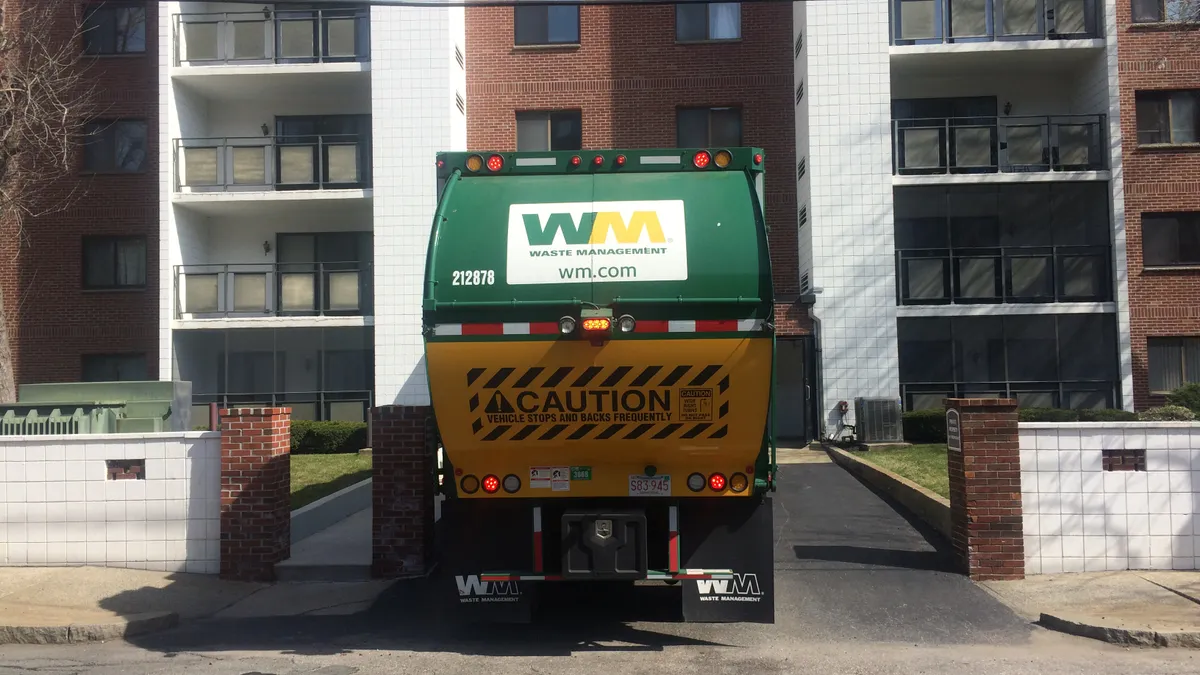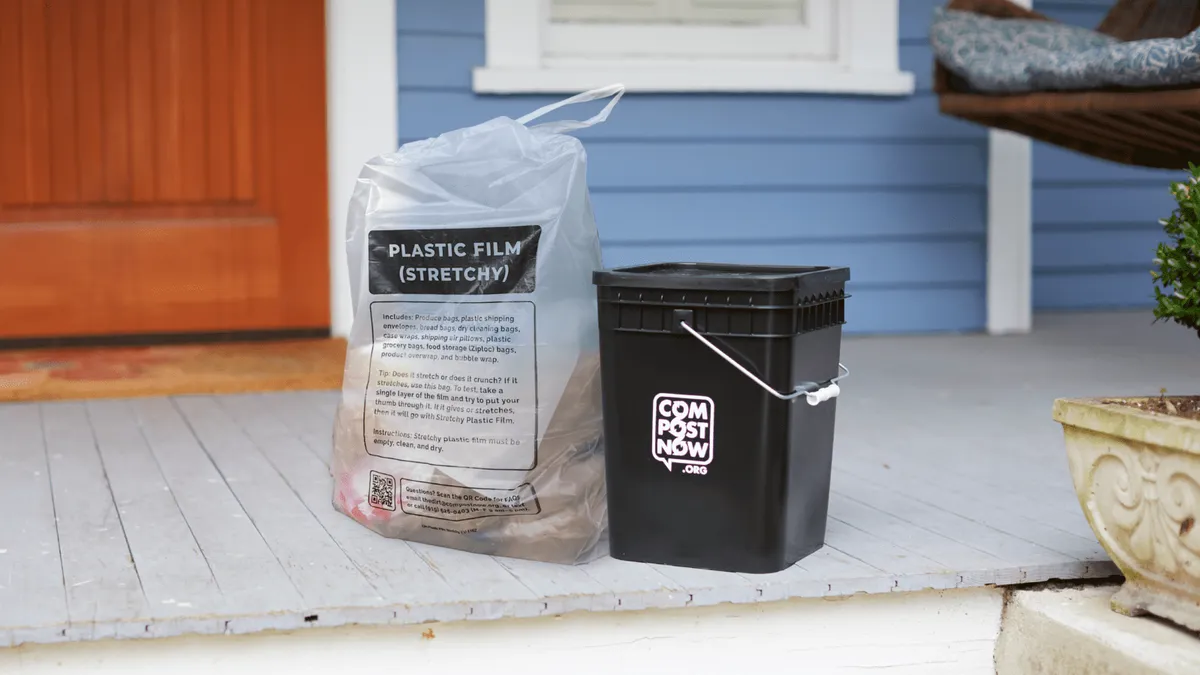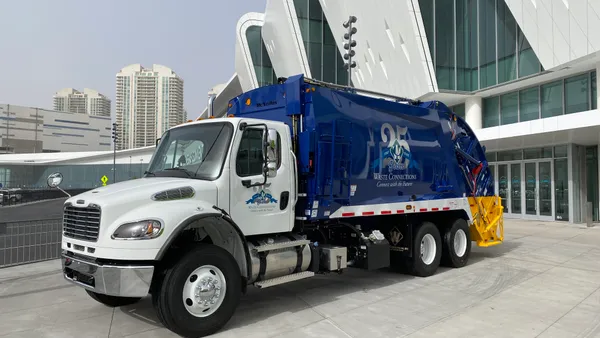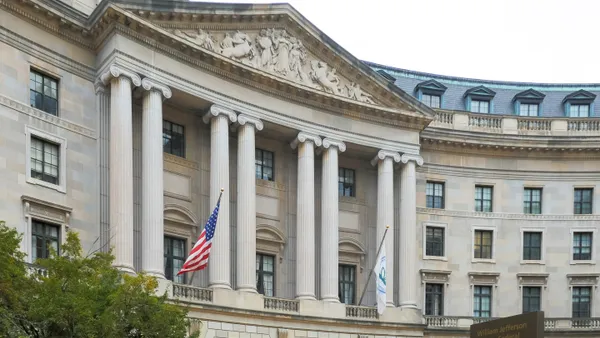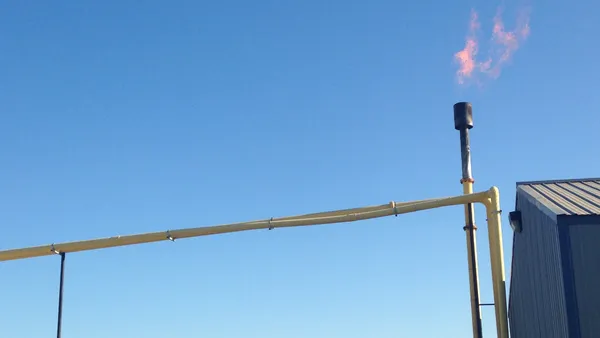UPDATE: Dec. 2, 2019: Delaware's New Castle County Council settled unanimously with Waste Management subsidiary Delaware Recyclable Products, Inc. (DRPI) over an ordinance limiting landfill height, WDEL reported. According to the terms of the settlement agreement, the landfill height cap will remain at 140 feet. In exchange, the council has agreed not to challenge the company's permitting efforts as it seeks to expand the Minquadale landfill beyond 130 feet.
The council voted Nov. 26 to approve the settlement. According to the resolution, "DRPI will limit its request to expand the landfill to a final vertical height limitation of 140 feet (mean sea level)" and dismiss its litigation while waiving "any and all claims" stemming from the council's ordinance passed in August. In exchange, "the County will acknowledge that DRPI may increase the final elevation of the landfill to a maximum of 140 feet MSL without securing a special use permit."
Dive Brief:
- Waste Management’s Delaware Recyclable Products, Inc. (DRPI) has filed suit against New Castle County over new restrictions on landfill height, Delaware Public Media reported this weekend. The company says the council purposefully targeted its C&D landfill in Minquadale, the only one affected by this policy, and is calling for a permanent injunction.
- In August, the council passed an ordinance capping local landfill heights at 140 feet. The DRPI landfill is permitted at 130 feet, but is seeking permission to expand to 190 feet. DRPI has said the site will have to shut down in a few months if the height restrictions are not waived.
- John Hambrose, communications manager for Waste Management's Greater Mid-Atlantic Region, provided Waste Dive with a copy of the complaint in lieu of comment. In the 141-page document, the company argues the council has overseen a "targeted campaign" in an effort to ultimately shut down the Minquadale landfill.
Dive Insight:
All members of the New Castle County Council are defendants in the case, as well as County Executive Matt Meyer. According to DRPI, the company successfully owned and operated the landfill for around 20 years before applying in 2018 for permission to increase the site's height. But DRPI argues that the county intervened before the approval process with Delaware's Department of Natural Resources and Environmental Control could finish by passing an ordinance limiting the landfill's height.
DRPI's lawsuit asserts that "certain members" of the council, namely Meyer and Councilman David Carter, introduced a number of documents into the record just before the ordinance vote in August. The company says those documents were introduced to support the ordinance and that the council rushed into the decision improperly and without actually considering the ramifications. DRPI argues the landfill height restrictions are "arbitrary" and have nothing to do with public health.
Carter told Waste Dive that DRPI's comments about the last-minute document dump are "untrue" and that the materials had been previously discussed at public meetings. He also said that public health has been a concern, as well as the landfill's impact on vulnerable communities. Carter said the landfill has contributed to depreciating property values, accelerating environmental justice concerns and disadvantaging those in the area.
"We've had several studies in the area that raised concerns about how allowing heavy industry to continue next to residential communities [could cause problems]," he explained.
According to Carter, 50% to 70% of the landfill's tonnage comes from outside Delaware. He indicated that in-state waste could be dealt with by the Delaware Solid Waste Authority, which oversees multiple landfills projected to have several decades of capacity left.
The Minquadale landfill is permitted to accept up to 2,400 tons tons of C&D daily, largely composed of waste like lumber and asphalt. DPRI has argued the landfill provides economic benefits to the community and that shutting it down would put more trucks on the road as they haul the waste farther away. The landfill also employs around 150 people, meaning jobs could be at stake.
Waste Management's state application to extend the landfill's height remains pending despite the litigation.


